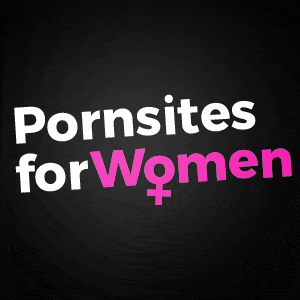Science is great — but reporting about science research often isn’t. While scientists (ideally) seek the truth and base their conclusions on carefully researched evidence, people who write headlines are often merely concerned with getting people to read, or at least click-through to, the articles their outlet publishes. The difference in goals means, among other things, the headlines concerning scientific research are often filled with hyped-up claims which have little to do with what the researchers themselves found.

Along those lines, Calico wonders where there’s really new research which concludes “women who watch porn are happier than those who don’t.” As it turns out, even finding the source data for this claim required jumping through hoops — and what she found at the end of the cyber-obstacle course only made her sorry she’d started looking into the question in the first place. Read all about it in her latest post, “Women Who Don’t Read Scientific Research Abstracts Are Probably Even Happier” …
by Calico Rudasill, Sssh.com Porn For Women
Growing up in a family filled with doctors, chemists, one not-quite veterinarian (she got the education but decided not to pursue the profession) and a geologist, I came to have a sincere respect for scientific research – and a healthy skepticism toward scientific reporting, and in some cases, scientific research itself.
More times than I can count, my mother would read an article in the morning paper which was, ostensibly, based on research she’d already read about in a far more in-depth professional publication, like a medical journal, or based on a study with which she was otherwise very familiar.
I could tell when mom had run across such an article, even before she started reading aloud from it. I could tell because she’d let out an audible sigh, then mutter something to herself along the lines of “No, that’s not what the data says.”
I felt a different sort of frustration over some science-related reporting recently, but one which still called to mind mom’s epic morning-newspaper sighs from my youth.
The (Not-So-Consistent) Art Of Linking To Sources
In my case, all I was trying to do was find the source data behind the fantastic-sounding headline “Women who watch pornography HAPPIER than those who don’t, study claims.”
 As a woman who watches plenty of porn (for both business and pleasure), but who also occasionally struggles with depression, my first reaction was “Damn – how fucking miserable would I be if I didn’t watch porn?”
As a woman who watches plenty of porn (for both business and pleasure), but who also occasionally struggles with depression, my first reaction was “Damn – how fucking miserable would I be if I didn’t watch porn?”
My second thought, one for which I have my inherited skepticism toward journalistic takes on scientific research to thank, was “Wait – is this really what this study says?”
Just tracking down the research which served as the basis for the dubious headline from The Sun was challenging, because like a lot of articles covering scientific research, this one didn’t link to or provide the name of the journal article in question.
All I had to work with, really, was this: “Dr. Mathias Weber, from the Johannes Gutenberg University in Mainz, said: ‘Women use sexually explicit material more when they have a partner.’”
OK, so that’s not quite all there was to go on, because there’s three more brief statements from Doc Weber: “This implies it is part of sexual practices” and “They seek help among friends when dissatisfied” and “Men prefer escapism.”
Offhand, these sound less like scientific conclusions than they do commonly-held stereotypes – and they also don’t sound like someone saying women who watch porn are “happier than those who don’t,” so even without finding the source of that claim, my confidence in the accuracy of The Sun’s coverage of the research, never high to begin with, was already trending toward zero.
Still, I decided to withhold final judgment on the research until I got to see it, firsthand.
For More Info, Jump Through This Hoop – And Just Be Thankful It’s Not On Fire
Unfortunately, getting the opportunity to see the data firsthand quickly started to look more complicated than I’d hoped.
I tried Googling the few solid tidbits I had in hand, like Doc Weber’s name, “Johannes Gutenberg University in Mainz” and the rest of the sparse detail available in the Sun piece. Before long, I was swimming in responses in German, which I used oh-so-reliable online translation tools to decipher, only to come up with phrases like “for women in relationship, erotics positive reaction more than lonely man” and “women who like porn, much better” (hey, at least I found a website which agreed with that translation).
Clearly, I needed to keep searching. Finally, after trying a few sensible keywords to add to Doc Weber’s name, I found the paper – sort of. What I found was not the paper itself, but an abstract of the article, along with a means to request the full text.
Still, even without the full text (which I have duly requested, but not yet received), I’m already inclined to think my suspicions are correct: This article says nothing like “women who watch pornography happier than those who don’t.”
“The intensity of using sexually explicit internet material (SEIM) is contingent on users’ gender,” the abstract states. “Drawing on a representative survey of German internet users, we therefore analyze how women and men use SEIM to satisfy escapist needs. Lower life satisfaction, the lack of a committed relationship, and feelings of loneliness contribute to predicting the frequency of using SEIM among men. Loneliness likewise fosters the consumption of SEIM among women, yet the effect is less pronounced.”
Translated to Calico-ese, what the above says is women who watch porn are (generally) happier than men who watch porn, not happier than other women who don’t watch porn.
To be fair, “Women Who Watch Porn Happier Than Men Who Watch Porn” doesn’t make for a great headline – and it really isn’t going to help any English dudes talk their girlfriends into watching porn with them, which may well be the real point behind the Sun’s interpretation of this research in the first place.








 Erotic Cinema For Discerning Adults
Erotic Cinema For Discerning Adults Anonymous Adult Search
Anonymous Adult Search